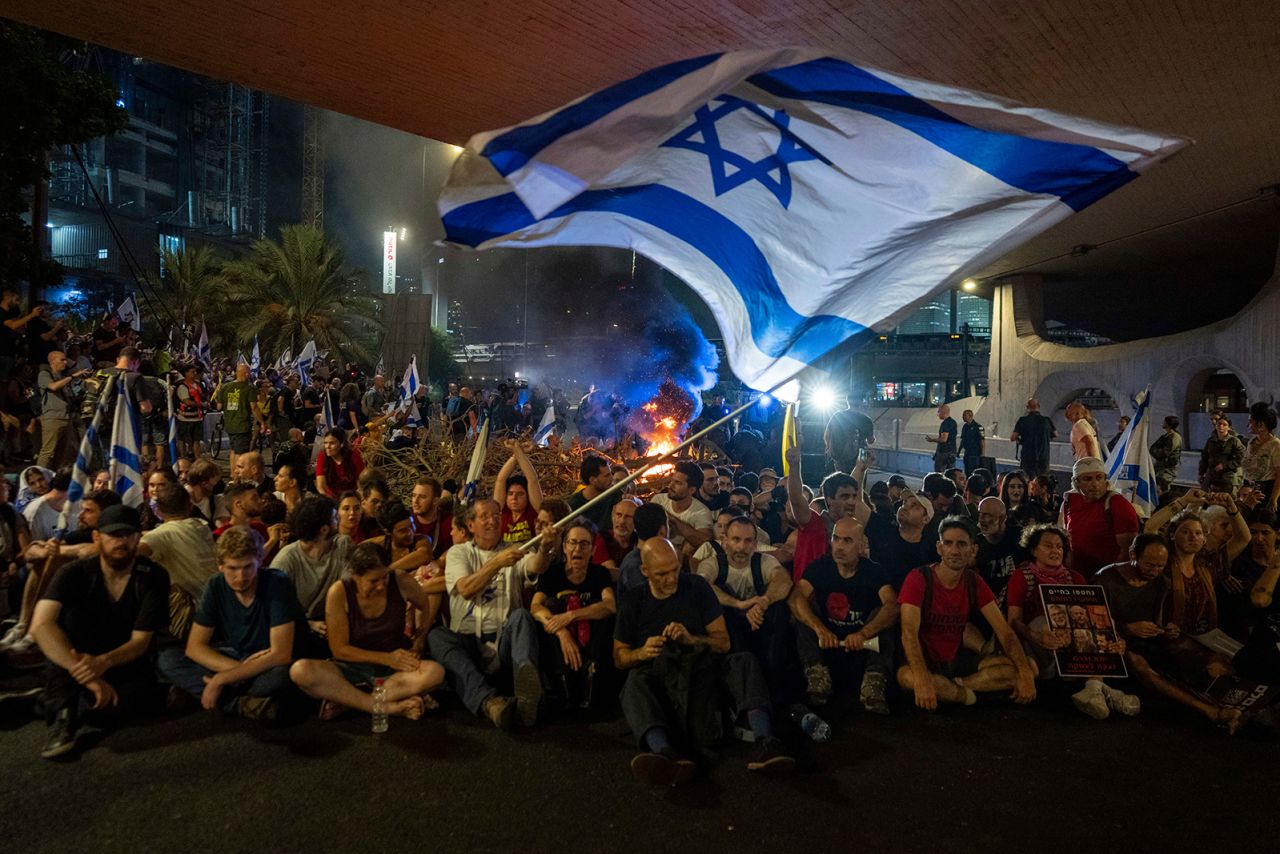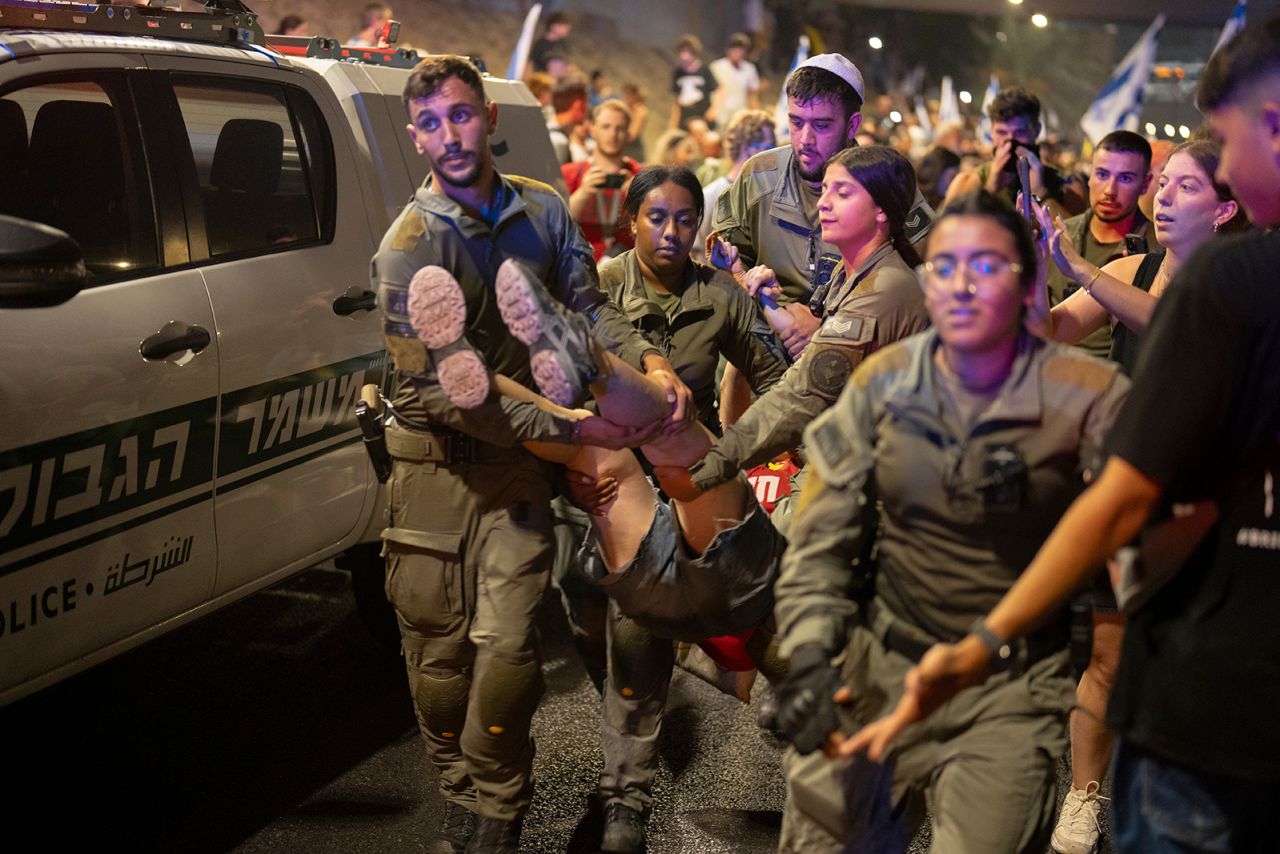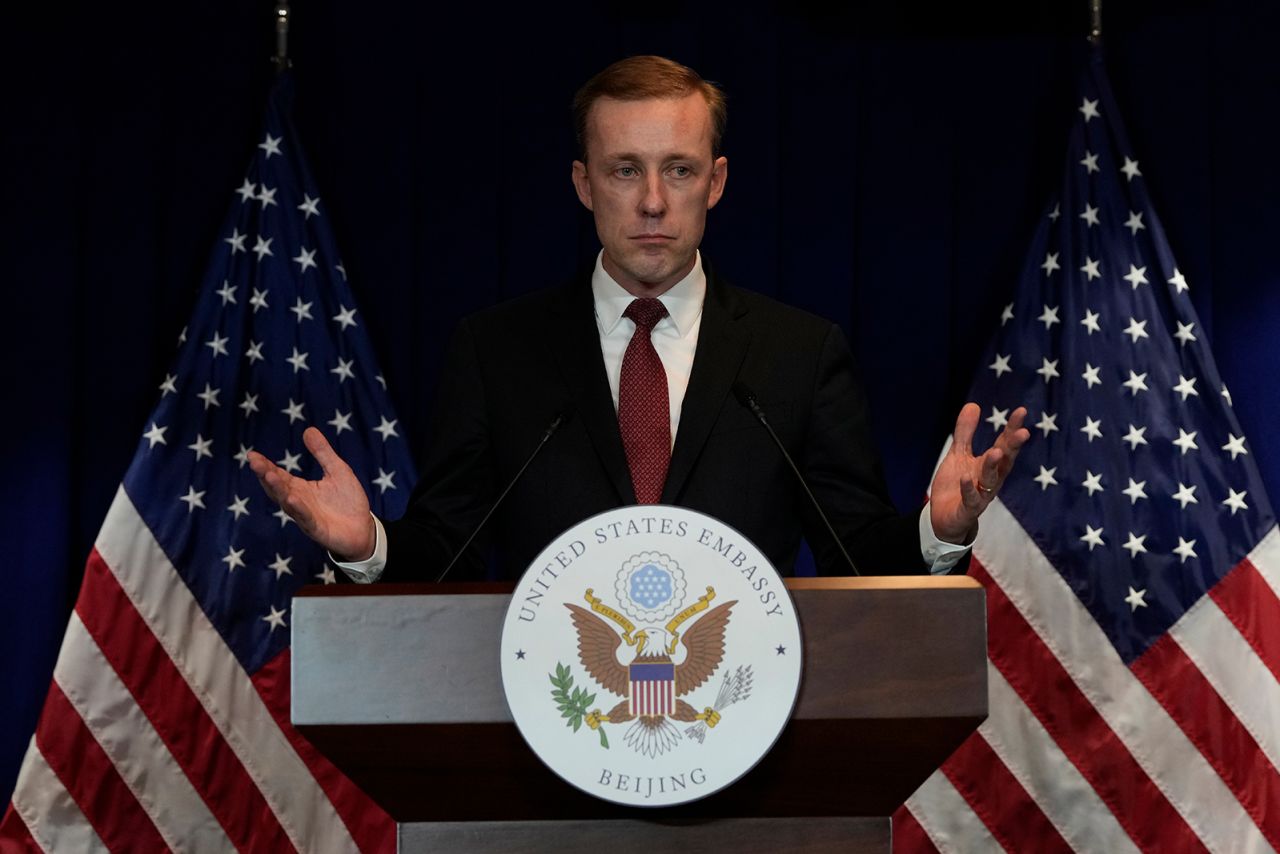Police use stun grenades to disperse protestors in Tel Aviv

Police in Tel Aviv used stun grenades to disperse protesters on Sunday night, according to video footage and Naama Lazimi, a member of Israel’s parliament who was present at the demonstration.
In video footage verified by CNN, police are seen throwing stun grenades at protestors blocking Tel Aviv’s Ayalon Highway, who were calling for the release of hostages in Gaza.
“A police force that throws stun grenades at protesters from close range and without control is a police force that endangers public peace and harms public health intentionally and contrary to the law.”
She said stun grenades “were thrown towards both sides where the demonstrators were standing in complete surprise and without any advance warning.”
Police earlier fired water cannons with foam at demonstrators sitting on Ayalon Highway.
They said they arrested 29 people during the protests in Tel Aviv on Sunday.
Police arrested 29 people during Tel Aviv protests

Israeli police say they have arrested 29 people during mass protests in Tel Aviv, accusing them of vandalism, disorderly conduct and attacking officers.
A policewoman was injured during a confrontation with demonstrators and lost consciousness before she was evacuated for medical treatment, police said in a statement without providing details.
Authorities also accused some protesters of breaching security perimeters and forcing their way onto the Ayalon Highway where they blocked several lanes and lit fires.
All traffic routes have been cleared of demonstrators and the roads are gradually reopening to cars, police said.
Israeli finance minister seeks injunctions to prevent nationwide strike

Israel’s far-right Finance Minister Bezalel Smotrich has asked the country’s attorney general to request urgent injunctions to prevent a planned nationwide strike on Monday.
In a letter addressed to Attorney General Gali Baharav-Miara, Smotrich argued that a strike would hurt the economy during wartime and set a dangerous precedent. The attorney general’s office has not yet commented on the request.
Earlier, Smotrich said he instructed the finance ministry’s salary department to pass on a directive that anyone who joins the strike on Monday will not be paid.
The nationwide general strike was called on by Arnon Bar-David — the leader of Israel’s largest labor union, known as the Histadrut — to pressure the government to secure the return of hostages in Gaza.
Smotrich said such a strike lacks any legal basis, arguing that it is political and intended to “improperly” influence policy decisions related to state security.
“These issues are at the core of the authority of the political establishment and they are not the subject of a strike by trade unions and there is no connection between them and labor relations in Israel,” Smotrich claimed in the letter to the attorney general.
Bar-David has vowed “the entire Israeli economy will shut down” at 6 a.m. local time Monday (11 p.m. ET on Sunday).
“We are in a downward spiral, and we don’t stop receiving body bags,” the labor leader said at a news conference earlier Sunday. Bar-David argued that political considerations have hindered progress on a hostage deal, and “only a strike would shock.”
Ceasefire talks thrown into tumult after the discovery of hostages killed in Gaza

The deaths of six hostages have thrown negotiations for a ceasefire deal between Israel and Hamas into tumult, with the White House national security adviser saying that “the next few days will be critical” in the push to free those still held in Gaza.
National security adviser Jake Sullivan, in a meeting Sunday, told the families of Americans held hostage that the administration will “work around the clock for a deal to secure the release of the remaining hostages.”
American officials said the deaths of the hostages, who were seized by Hamas in their October 7 attacks, would not derail the talks. Instead, they described new urgency in reaching a deal.
President Joe Biden and Vice President Kamala Harris will meet with the US hostage deal negotiating team in the Situation Room today, according to updated guidance from the White House.
US officials have voiced frustration at what they regard as resistance by Prime Minister Benjamin Netanyahu in reaching a deal, leading to occasionally tense conversations between Biden and his Israeli counterpart.
Still, in their statements late Saturday, neither Biden nor Vice President Kamala Harris applied pressure — either explicit or implied — on Netanyahu to reach a deal.
American officials were acutely aware that pressure would come from inside Israel itself.
As protests against the Israeli government sweep the country, Netanyahu has accused Hamas of killing the six hostages and said the group was not serious about a ceasefire deal.
No comments:
Post a Comment